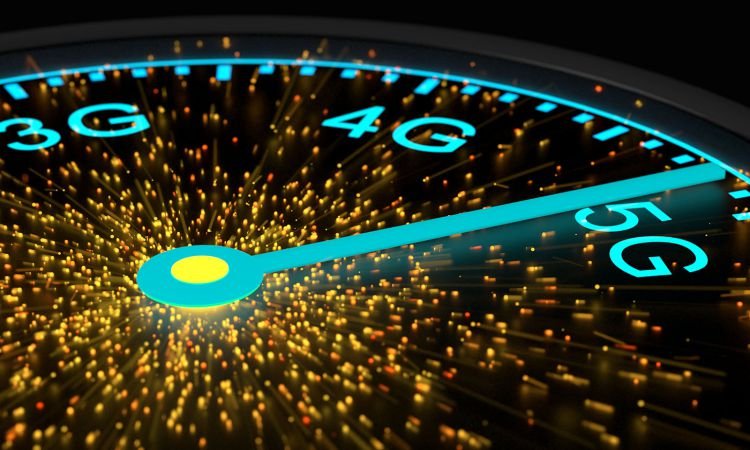 Did you know that an estimated 85 percent of homes in the United States of America had a broadband internet subscription in 2018? The technology behind the World Wide Web has grown immensely over the past couple of decades. These technological improvements are allowing people to work or learn from home and remain connected to those that mean the most to them.
Did you know that an estimated 85 percent of homes in the United States of America had a broadband internet subscription in 2018? The technology behind the World Wide Web has grown immensely over the past couple of decades. These technological improvements are allowing people to work or learn from home and remain connected to those that mean the most to them.
The big dilemma today when it comes to the internet is whether to go with 5G home internet vs. cable internet. 5G home internet provides a number of benefits that might turn your head and make you reconsider your current cable internet setup. Conversely, perhaps cable internet is the best fit for your area and your needs.
The good news is that you’re in the right place to learn more about your home internet options from this cable internet guide and 5G home internet guide. Keep reading to learn more today!
How Does Cable Internet Work?
Cable internet is a more traditional form of internet and it requires a wired infrastructure set up in order to connect your home to the web. If there aren’t any wires in your area and your home is newly constructed then you won’t have internet access. That said, cable internet is offered in the vast majority of urban, suburban, and some rural areas.
If you live in a rural area and there isn’t a wired infrastructure that reaches your home then you’ll need to explore your other options for internet access at your home. You should also never settle for cable internet speeds lower than 25 megabits per second. It’s a great option if you want to have a low internet bill and you live in a home that is already wired and ready to go.
There are tons of options for cable internet no matter what part of the country you live in. There are even fast business internet options like Comcast Business Internet service.
The installation process is a bit involved when it comes to cable internet. If the cable wires haven’t been laid in your area then installation could tear up your home’s yard and cost you a pretty penny. Once the home is wired, you’ll need to pay your subscription fee and get your modem and router up and running before you start enjoying your new internet service.
For most internet, TV, and residential service consumers, Spectrum cable is the go-to service provider when you’re looking for a great price tag on an amazing bundle deal or even a standalone plan.
How Does 5G Home Internet Work?
5G home internet works in a similar fashion to how the data on your cell phone or mobile device works. The internet that comes from a 5G network is delivered in a wireless fashion through the use of cellular towers in your area. 5G internet is a big boost for internet users because there isn’t a ton of installation requirements in order to deliver internet access to your household.
One thing to consider if you’re thinking about boing with 5G home internet is the fact that there are limited carriers that offer these internet plans. There is a lot of potential for expansion of these internet options as they become more accessible. All of the major mobile phone carriers are moving towards offering 5G home internet services.
You’ll need to make sure that the carrier that you wish to sign up with has a node in your area in order to get the fastest internet service. Similar to traditional internet services, you’ll also need a router to collect the signal and send it on to your devices. If you live in a rural area and you need a WiFi booster then you can also purchase one and ask the technician to install it.
Pros and Cons of Cable Internet
The biggest benefit of choosing cable internet for your home’s internet needs is accessibility. The majority of homes in the United States are already wired and ready to go with a cable internet provider. There are also low-cost plans available through these internet providers if you don’t need the best speeds for your at-home internet activities.
Some providers also grant you the option of bundling your internet and cable plan with your phone plan in order to get a better rate across the board. If you need high internet speeds then cable internet might be your best bet since you can get speeds up to 1Gbps in certain areas.
Keep in mind that this type of internet can get affected by the weather in your area. Internet speeds are also capped by the wiring used in your area. You might not always get the advertised speeds due to the burden on the network from other users.
Pros and Cons of 5G Home Internet
A major reason why people are excited about 5G home internet is the ease of installation for homeowners that want good internet at home. There is no need to dig up your yard in order to install wires that connect your home to the web. The internet connections it 5G home internet are also much faster compared to most other internet options.
You won’t need to worry about weather putting a damper on your internet experience if you choose this route. Best of all, you can bundle your 5G home internet service with streaming services to get better deals.
The main drawback to 5G home internet vs. cable is the fact that it’s not widely available yet. There aren’t a ton of customer reviews since it’s a new service so it is hard to know what you’re getting. The speeds could also get throttled as more customers in your area go online with 5G home internet rather than cable internet.
Start Shopping for 5G Home Internet vs. Cable Today
If you’re in the market to upgrade your internet at your home then it is best to know the 5G home internet costs and your different internet options. The main battle for internet supremacy surrounds 5G home internet vs. cable internet. Each offers a number of benefits, with cable internet more available in urban and suburban settings and 5G home internet providing greater convenience.
For more exciting articles on a range of topics, check out the rest of our website!




